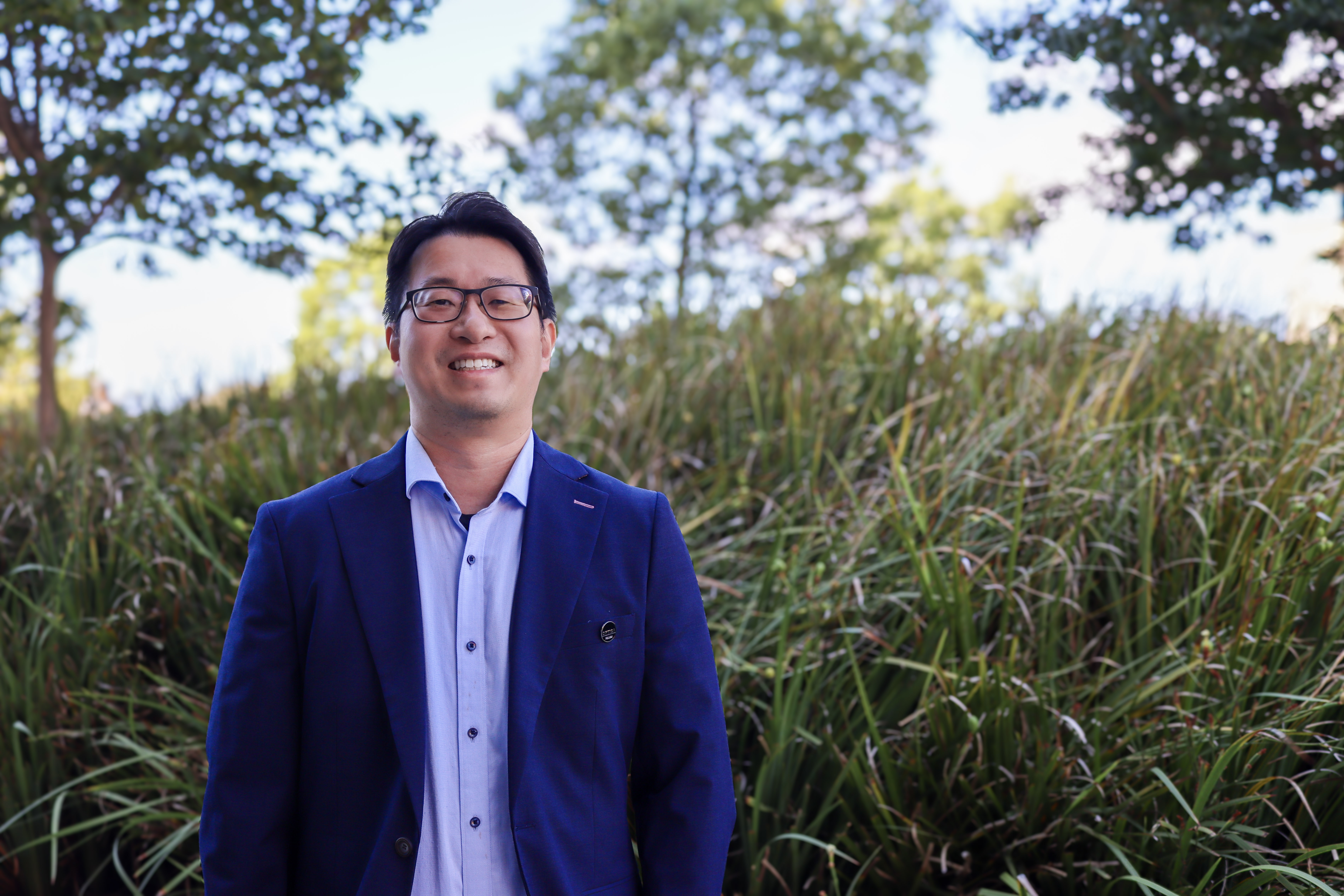Howard Lee selected as Moore Experimental Physics Investigator to develop revolutionary nanoscale electron accelerator

Lee is developing the world’s first nanoscale electron accelerator by merging advanced nano-optical materials and nanostructures with laser wakefield acceleration.
Professor Howard Lee in the UC Irvine Department of Physics & Astronomy has been named a 2025 Experimental Physics Investigator by the Gordon and Betty Moore Foundation. The funding will support Lee in advancing groundbreaking research in nanoscale electron acceleration technology.
Lee is developing the world’s first nanoscale electron accelerator by merging advanced nano-optical materials and nanostructures with laser wakefield acceleration. Unlike traditional accelerators such as the Large Hadron Collider that require extensive long well-defined channels, Lee’s apparatus uses nanoscale solid-state materials and high-power ultrafast lasers to accelerate electrons and generate X-rays.
“This award is significant since it allows me to pursue an entirely new research direction not previously explored,” Lee said. “Given the current funding climate, the opportunity to support research with bold new ideas is truly game-changing for my group, allowing us to further advance optical science and technology. I am deeply grateful to the Moore Foundation for their generous support.”
Lee’s work could enable new medical therapies, including laser wakefield accelerator optical fiber endoscope probe and free electron laser devices for next-generation biomedical and imaging technologies. When integrated into optical fibers, these nanoscale accelerators could open transformative biomedical applications, including advanced cancer treatments.
The research has significant implications across multiple scientific disciplines, including nano- and nonlinear optics, plasma physics, particle physics, and biophysics. Beyond its practical applications, the research promises fundamental insights into utilizing nanoscale metasurfaces for particle acceleration and could create an entirely new class of light-matter phenomena.
“The year 2025 is a particularly special one for me, as I was promoted to Full Professor at UC Irvine, elected as an Optica Fellow, and now selected as a Moore Experimental Physicist,” said Lee. “I am deeply grateful to my former postdoc advisor, Harry Atwater at Caltech, and my Ph.D. advisor, Philip Russell at the Max Plank Institute for the Science of Light, for their invaluable guidance throughout my academic journey and for serving as inspiring role models in pursuing optical science and photonic technology as a career.” Lee also thanks UC Irvine and his colleague, Professor Toshiki Tajima, a leading theoretical physicist in laser wakefield acceleration, who first introduced him to this field of research.
The Gordon and Betty Moore Foundation advances scientific discovery, environmental conservation, and the special character of the San Francisco Bay Area. Visit moore.org and follow @MooreFound.
